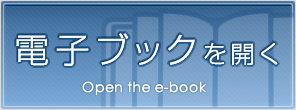「人道研究ジャーナル」Vol.2 page 75/276
このページは 「人道研究ジャーナル」Vol.2 の電子ブックに掲載されている75ページの概要です。
秒後に電子ブックの対象ページへ移動します。
「電子ブックを開く」をクリックすると今すぐ対象ページへ移動します。
概要:
「人道研究ジャーナル」Vol.2
The Journal of Humanitarian Studies Vol. 2, 2013Three nurses and 22 nursing students were killed; however, some survived nurses, who received injuries, begantheir relief activities immediately after the bombing.(After exposure) I pushed away rubble, finally managed to come out, and I reached to a patient’s bedroom. I saw bloodydreadful scene of carnage there. Dead bodies and necks were stuck between beds and big glass fragments stuck into theirfaces and bellies. There were all bloody. I felt as if I was in a fierce battlefield. [...]In less than an hour, many atomic bombvictims crowded into the hospital. They were all in silence. Their cloths were scorched black and their arm skin was peeleddown. As I could not distinguish men from women, their faces were burnt, hair became frizzy, and their eyes and noses weregreatly swollen. Hundreds and thousands of atomic bomb people formed a very long queue to enter the hospital building.They were saying.“Help me, please help me...”We could only inject as much haemostasis, cardiac and antibiotic agents aspossible. (I am One of Survivors) (14)A deputy chief nurse assigned to the Surgical Ward wrote her memoir as follows. At that time, everybody didnot realise that the bomb was actually the atomic bomb. Nurses could only treat burn injuries and remove glassfragments from bodies.We finally managed to have olive oil. We tore off sanitary cotton and administered the oil on victims with the cotton.Whatever there were a countless amounts of sand and glass fragments, which stuck to the survivor’s face, back, handsand legs, we continuously administered the oil. There was no matter of hygiene but additional peanut oil received from apharmacy was just nothing helpful at all like a drop in the ocean. [...] (My Work at the Hiroshima Army Red Cross Hospitalduring the Aftermath of the Atomic Bombing)A nursing student, who was an intern at the Outpatient Internal Medicine Ward of the hospital, remembers asfollows:When I came to myself, it seemed like I had been blown a few meters away to somewhere else like a corridor. [...] I thoughtthat it was very dangerous to step onto the corridor in bare feet because there was an amount of debris from the roof anda wall and glass fragments. When I slightly returned to consciousness, I saw a terrible scene. [...] Each window pane hadsplintered and iron window frames were warped like sticks of melted (amber colour) sweets. It showed me the great energyof the atomic blast. [...] I was usually having two emergency packages. I had packed various kinds of daily goods there.When I managed to find them and wore shoes, I thought,“I am the new hope of a Red Cross nurse... Yes, I am a Red Crossnurse.”I felt a sudden shiver run up my spine ? it ignited my fury. And I believed,“I will do it. I should do it.”[...] I was notaware of that my legs were hurt by glass fragments, but I carried the wounded; lent my shoulder to assist their toileting; heldsurvivors and cleared away fire sparks. I carried out the relief activities without rest. [...] We did not have time to take a restand to sleep. However, nobody complained about that. We strongly believed that relief was our duty; therefore, we workedvery hard. (My Friend Passed Away in a Flash Light: The Day in Hiroshima) (15)A nurse dormitory in the ground of the hospital was instantly destroyed completely because it was made of wood.It transpired that debris caught the fire, which had been caused by the bombing, near the collapsed hospital. Whenthe dormitory was demolished, many nursing students became trapped under debris. Therefore, a chief nurse, MsOshie Taniguchi (later Kinutani), who was a trainer, tried hard to rescue students with hospital officers and armypatients who had not been seriously injured. Despite the fact that she had been in the bomb and was exposed toradiation, she saved a number of students and cared atomic bomb survivors, whom she received at the hospitalwithout taking any rest. Due to her great dedication, she was awarded the Florence Nightingale Medal in 1959.She wrote a number of memoirs. In one of them, she writes as follows:人道研究ジャーナルVol. 2, 201373

